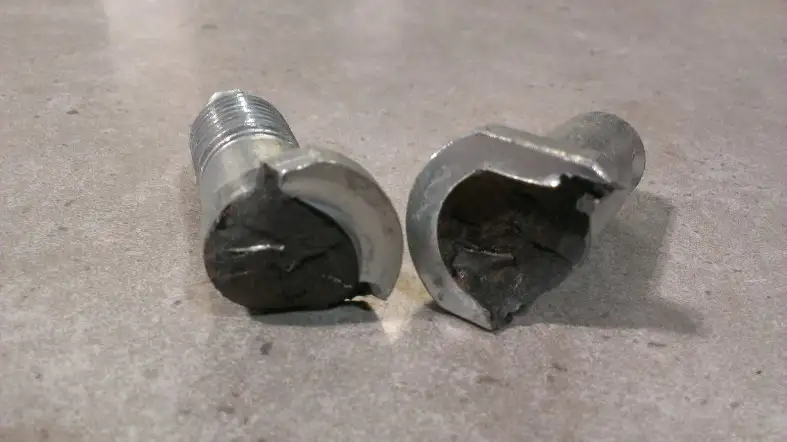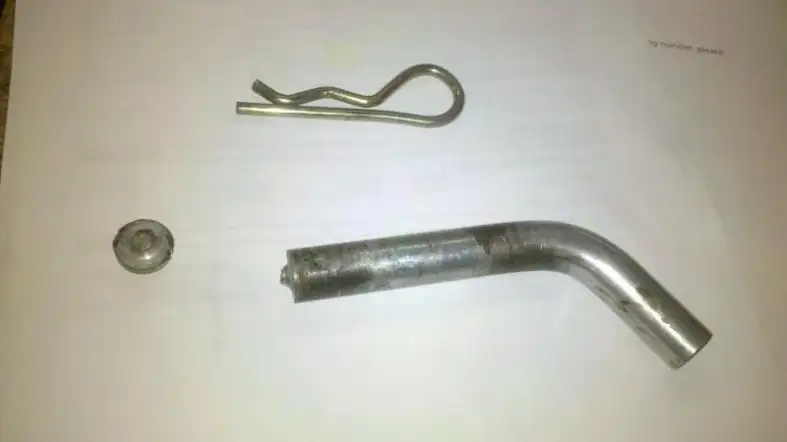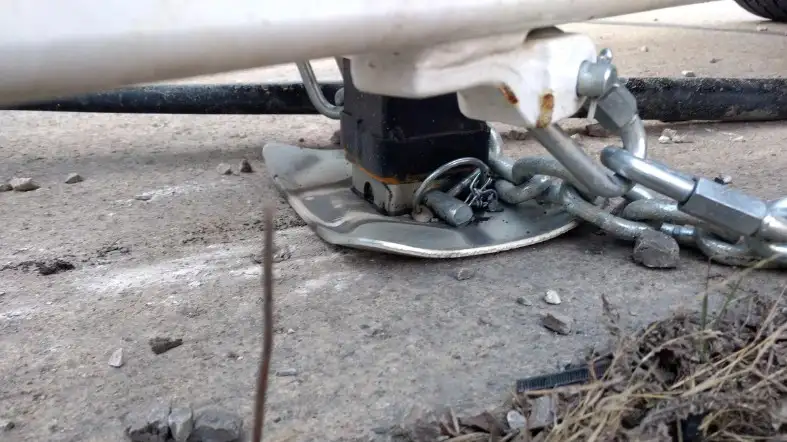Hitch pins are small metal pins that are used to connect different components of a hitch or tow system together.
They play an important role in keeping your equipment securely connected and functioning properly, but they can sometimes break or become damaged.
In this guide, we will discuss can hitch pins break, why you may need to replace one, and how to choose the right replacement for your needs.
Can Hitch Pins Break?
Yes, hitch pins can break. Hitch pins are typically made of metal and are subject to wear and tear, as well as damage from impacts or excessive stress.

The metal can become weakened over time, or it can break if it is subjected to extreme forces.
For example, if a hitch pin is hit with a heavy object or is subjected to high levels of torque, it can break or become bent out of shape.
Hitch pins can also break if they are not properly installed or if they are not the correct size for the hitch they are being used with.
In general, hitch pins are designed to be durable, but they can break if they are not used or maintained properly.
What Are The Causes That Break Hitch Pins?
There are several types of stress that hitch pins can be subjected to, including:

1. Tension stress:
This type of stress is caused by a pulling force applied to the pin, such as when a trailer is attached to a hitch and pulled down the road.
Tension stress can cause the pin to elongate and weaken, increasing the likelihood of breakage.
2. Compression stress:
This type of stress is caused by a pushing force applied to the pin, such as when a trailer is loaded with a heavy load.
Compression stress can cause the pin to compress and weaken, increasing the likelihood of breakage.
3. Shear stress:
This type of stress is caused by a sliding force applied to the pin, such as when a trailer is turned or swerved.
Shear stress can cause the pin to break along its length, increasing the likelihood of breakage.
4. Torsional stress:
This type of stress is caused by a twisting force applied to the pin, such as when a trailer is hitched to a vehicle with an uneven tongue weight.
Torsional stress can cause the pin to twist and weaken, increasing the likelihood of breakage.
What Happens When A Hitch Pin Breaks?

If a hitch pin breaks, it can cause the trailer or load to become detached from the vehicle, potentially leading to accidents.
This can cause damage to the vehicle and the trailer or load, as well as potential harm to other vehicles or pedestrians on the road.
The detachment of the trailer or load can also cause the vehicle to lose stability and control, potentially leading to a loss of control and accidents.
Additionally, the loss of the trailer or load can result in financial losses for the owner.
How to prevent hitch pin breakage?
There are several steps that can be taken to prevent hitch pin breakage:
1. Regularly inspect the hitch pin and surrounding components for any signs of wear or damage.
This includes checking for cracks, dents, or other deformities on the pin or surrounding hardware.
2. Use a hitch pin with the appropriate size and strength for the specific load and towing conditions.
Check the manufacturer’s specifications to ensure the hitch pin is rated for the weight and type of load being transported.
3. Properly install and secure the hitch pin according to the manufacturer’s instructions.
This includes ensuring the pin is fully inserted into the hitch and properly aligned with the locking mechanism.
4. Use a hitch lock or other security device to prevent the hitch pin from being removed or tampered with while in use.
This can help prevent theft or unauthorized removal of the hitch pin.
5. Avoid overloading the hitch and towing vehicle, as excessive weight can put added strain on the hitch pin and other components.
Regularly check the weight of the load and the towing capacity of the vehicle to ensure it is not exceeded.
6. Use proper towing techniques and avoid sudden movements or sharp turns, as these can put added stress on the hitch pin and potentially cause it to break.
7. Store the hitch and hitch pin in a dry, protected location when not in use to prevent rust or other damage.
Clean and lubricate the hitch pin and surrounding components on a regular basis to maintain proper function and prevent breakage.
How to use a hitch pin?
Here are some guidelines on how to use a hitch pin:-
1. First, determine the size of the hitch pin needed for your specific hitch. Measure the diameter of the hole on your hitch where the pin will be inserted.
2. Place the hitch pin through the hole on your hitch, with the closed end of the pin facing outward.
3. Position the pin so that it is parallel to the hitch and aligned with the hole.
4. Using a hammer or mallet, gently tap the pin into the hole until it is securely in place.
5. Once the pin is in place, secure it with a hitch clip or cotter pin to prevent it from falling out.
6. To remove the hitch pin, simply reverse the steps. Use a hammer or pliers to gently tap or pull the pin out of the hole. Remove the hitch clip or cotter pin first if necessary.
7. When not in use, store the hitch pin in a safe and accessible place to ensure it is ready for use when needed.
FAQs on Can Hitch Pins Break
What Are Hitch Pins And What Are They Used For?
Hitch pins are small, heavy-duty pins that are used to secure a trailer to a hitch on a vehicle.
They are typically used on vehicles with towing capabilities, such as trucks or SUVs.
What Should I Do If My Hitch Pin Breaks While I Am Towing A Trailer?
If your hitch pin breaks while you are towing a trailer, it is important to take immediate action to avoid a potentially dangerous situation.
First, carefully bring your vehicle to a safe and controlled stop.
Then, replace the broken hitch pin with a new one, making sure it is properly secured before continuing your journey.
Can I Replace A Broken Hitch Pin Myself, Or Do I Need A Professional?
In most cases, a broken hitch pin can be easily replaced by the vehicle owner.
However, if you are unsure of how to properly replace a hitch pin or if the hitch or trailer has been damaged, it is best to seek the assistance of a professional mechanic.
What Are The Benefits Of Hitch Pins
The benefits of hitch pins are-
1. Hitch pins secure the hitch and trailer to the towing vehicle, ensuring a safe and stable connection.
2. Hitch pins prevent the hitch and trailer from disconnecting or becoming loose during transport.
3. Hitch pins are a simple and effective way to secure the hitch without the need for additional tools or equipment.
4. Hitch pins are easy to install and remove, making it convenient to attach and detach the trailer.
5. Hitch pins are relatively inexpensive and widely available, making them a cost-effective solution for securing hitches.
6. Hitch pins are versatile and can be used on a variety of hitches and trailers, making them a universal solution for securing hitch connections.
Final thoughts
In conclusion, hitch pins are designed to be strong and durable, but like any other type of hardware, they can break under certain circumstances.
It is important to regularly inspect hitch pins for signs of wear and damage and to replace them if necessary to ensure safe towing.
